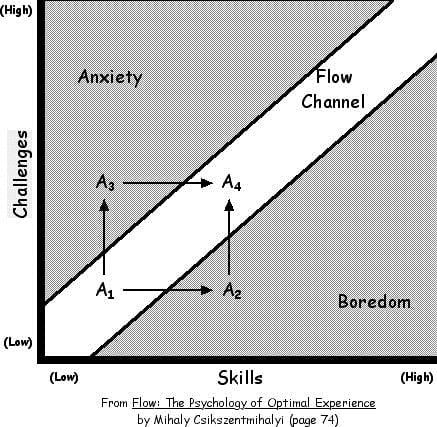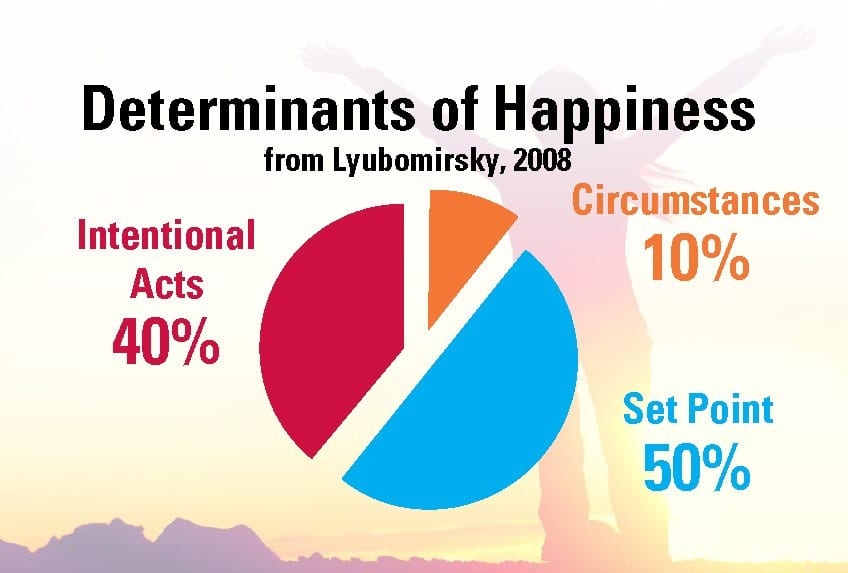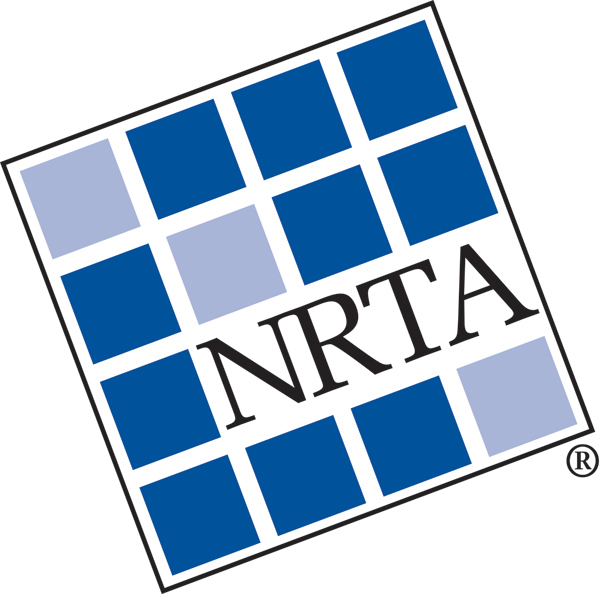by Jill Stratton, Ph.D., Associate Dean of Undergraduate Residential Learning at Washington University in St. Louis; www.jillstratton.com
Ask yourself: When was the last time you were so caught up in doing something you loved that you lost all track of time? What would happen to your life and career if you spent more time doing those kinds of things?
Those two questions and others like them lie at the heart of my work. As a student affairs educator and teacher, I have developed workshops and retreat programs that seek to guide individuals–whether students, non-profit professionals or corporate leaders–toward lives more in tune with the things that bring them joy.
And if all this sounds too touchy-feely and idealistic for the pragmatist dwelling within you, my work builds upon significant empirical research that shows that happy people are, in fact, more effective people. And while similar workshops may sometimes be either too theoretically heavy and un-relatable or too “soft” and not grounded in anything other than emotions and feelings, my programs offer participants research-based, applied strategies to increase happiness in their lives and careers.
According to the research, when people spend more time doing things that make them happy or joyful, they are more effective. My workshops integrate research with practical strategies, and people seem to be responding to that.
I was first drawn to the subject several years ago while co-teaching a course called “Psychology of Young Adulthood” with internationally known expert on happiness and positive psychology Randy Larsen, professor of psychology at Washington University in St. Louis.
I was fascinated by the question of exactly what happens when people lose all track of time when they are engaged in doing something they love, a state described as “flow” by Hungarian-born Mihaly Csikszentmihalyi, a psychology professor at the Claremont Graduate University in California.He defines flow as an “almost automatic, effortless, yet highly focused state of consciousness” that is linked to “positive emotions, improved performance and achieving a meaningful life.” Athletes often refer to this state as being “in the zone.” The idea of flow has its roots in the positive psychology movement, which studies how people thrive rather than looking at the negatives in a person’s life.
When individuals are in flow, their skills and challenges match up, which is illustrated in this chart:

In my work with undergraduate students at Washington University, part of my challenge is helping them reexamine and redefine exactly what happiness and joy mean.
This is not about the hedonistic qualities of happiness or joy and it’s not about surface level happiness. In defining happiness, the field of positive psychology focuses the definition on meaning and purpose and what Aristotle described as a ‘flourishing life.’”
In my workshops and retreats, I draw on the research of behavioral scientists like Larsen and Csikszentmihalyi, as well as thinkers, teachers and writers such as Parker Palmer, author of Let your Life Speak and psychologist Sonja Lyubomirsky, author of The How of Happiness: A New Approach to Getting the Life You Want.
Joy, Flow and Music
Whenever possible, I integrate music and live performances into my programs and often collaborate with singer-songwriters who can illustrate and bring to life the idea of joy and flow through their music. I am a long-time lover and supporter of acoustic and folk music and have been involved in music management and concert promotion for many years, including working closely with such artists as veteran singer-songwriter and teacher Carrie Newcomer and up-and-comer Jenna Lindbo, both of whom have collaborated with me on workshops and concerts.
I love introducing the element of music into my workshops in some way. When Csikszentmihalyi began studying this concept of flow, he studied artists–painters and sculptors and musicians. Music has a way of connecting with our hearts when we’re trying to teach and have people experience things is different ways. Learning can take place through a song or through some kind of artistic collaboration where people come together to create something. It’s a different way to tap into what’s in your heart.
Finding Vocational Joy and Purpose
Those who attend my workshops, whether undergraduates, experienced administrators, or corporate leaders, are often looking for the opportunity to think and talk about their passions and what they perceive to be their “calling,” whether they have responded to that call or pushed it aside for a period of time.
Sometimes people pursue career paths based on external cues like whether or not they think they will make money or whether society sees that career path as notable. We think this is what we should do, but a lot of times we haven’t paid attention to the things that we’re good at–our strengths, our passions–and then align them to vocational calling.
Someone once asked me if the goal was to “be in flow 24 hours a day?” The goal, according to Csikszentmihalyi, is to spend as much time as possible in activities that put you in a state of flow.
We have to sleep and pay bills and do other necessary things, but I think people don’t give themselves permission to explore those things that give them joy because they have this other notion of what they should be doing. People get into jobs and, let’s face it, they may get into ruts doing things that are not their strong suits. You can’t always design your own job, but you can try to spend more time doing the things that you’re good at and that put you into flow. And research shows that you’re more effective when you do that.
People who do focus on their strengths every day are six times as likely to be engaged in their jobs. They are more productive too, both individually and in teams. And they are more than three times as likely to say they have an excellent quality of life.
~The Gallup Organization
According to Sonja Lyubomirsky, whose research shows that if you look at happiness as a pie chart, 50 percent of people’s overall happiness is in their DNA and genetics; 10 comes from circumstances of life like income, relationships, jobs, education and health; and 40 percent is derived from intentional acts, things that they actually have control over. I find her research to be empowering and inspiring.

Most people think, “if I could only make more money, or find my soul mate or get this job, then I would be happy.” But when I present that chart to people it’s actually quite stunning because it gives them control over their own happiness and how they pursue and explore it.
According to psychologist Sonja Lyubomirski, there are intentional acts that we can do to increase our happiness in our lives, which contributes to our career success:
- Cultivate social relationships à Trust & Healthy Conflict
- Savor the joy in everyday life
- Help other people
- Focus on your strengths: identify strengths through reflection, leadership assessments (i.e. Gallup’s StrengthsFinder or the Values in Action survey), talk to a trusted mentor
- Express gratitude for what you have/what is going well
There is power that can be unleashed by the simple act of talking about your joys and passions and focusing on what you can influence. Learning that we have more control of our destiny through our intention awakens people to their power—their power to create the reality they desire.
At a recent lecture, a college senior asked me a pointed question: “Dr. Stratton: If you won the lottery tomorrow, would you quit your job?”
I paused and replied: “Here’s the true story. I’ve already won the lottery. I have on a daily basis the opportunity to do something I love and make a difference. I love what I do. Is my life perfect? Far from it.”
That’s not what this is about. I just feel that people too often pigeonhole themselves into what they think they should do. They may not even understand what’s possible. We know if we exercise and eat right that we will be physically healthier. But now research has given us some things to do if we want to be emotionally, mentally and spiritually more happy. I’m excited to encourage people to find out what those things would be for them, giving them options and possibilities to increase their happiness. When people come to my workshops and walk away with the research and the strategies to help them identify joy in their lives—that inspires and motivates me. They show up, they ask questions and they have light bulbs that go off. For me, that’s really exciting. That brings me joy!
The Research on Gratitude for Individuals
The Greater Good Science Center
- Stronger immune systems and lower blood pressure
- Higher levels of positive emotions
- More joy, optimism, and happiness
- Acting with more generosity and compassion
- Feeling less lonely and isolated
- Stay in shape, live healthy
- Have goals and ambitions
that you value - Stay optimistic, avoid pessimism
- Try to rebound quickly from negative events
